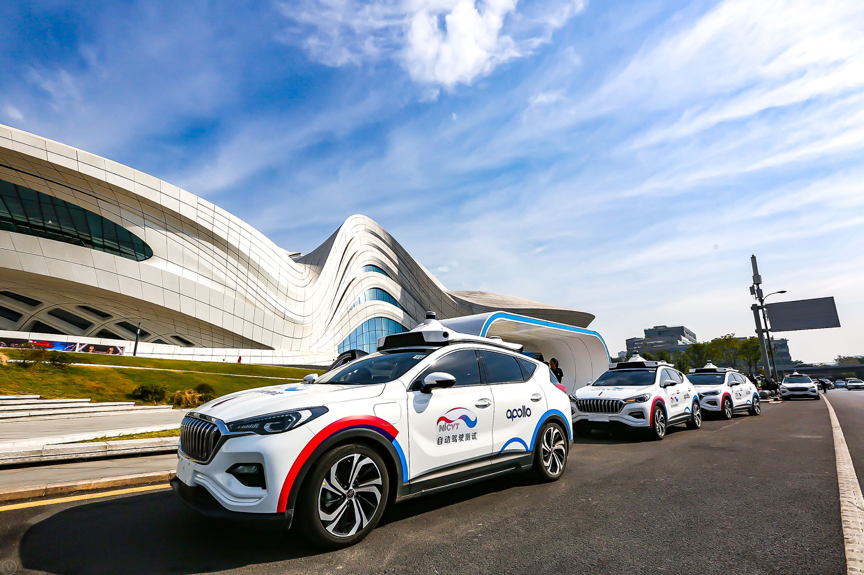Baidu's autonomous driving taxi service opens to public in Central China's Changsha
Source:Global Times Published: 2020/4/20 16:36:08

An autonomous Apollo Robotaxi from Baidu in Changsha, Central China's Hunan Province Photo: courtesy of Baidu
Chinese search engine company Baidu on Sunday launched an autonomous taxi service in Changsha, Central China's Hunan Province. Further trial runs will be launched in other cities including Beijing.
The Apollo Robotaxi service will cover a range of about 130 square kilometers in Changsha, including local residential areas, business and leisure areas, and industrial parks; Other multi-dimensional practical scenarios will also be covered, according to a statement Baidu sent to the Global Times on Monday.
The Robotaxi service started in Changsha in September 2019 on a trial basis and was launched to the wider public on Sunday. Changsha residents can call Robotaxis through the Baidu Map app or the Baidu app.
The Apollo Robotaxis are currently free of charge in Changsha and under trial run in Beijing and Cangzhou, North China's Hebei Province. Baidu in December 2019 acquired 40 test licenses in Beijing for autonomous cars that can carry passengers. It was the first time the city issued such licenses.
The top Chinese economic planner outlined the scope of new infrastructure for the first time on Monday, including 5G, big data, satellite internet and blockchain.
"The construction of new infrastructure in China, such as 5G, cloud computing, big data and artificial intelligence, has boosted the development of autonomous driving. Technologies have improved data collection and processing capacities," Li Ying, a Beijing-based digital industry analyst, told the Global Times on Monday.
Beijing released an official report on autonomous driving road tests on March 3, in which Baidu had the highest number of vehicles and test lengths in 2019.
According to the report, a total of 77 vehicles including 40 manned vehicles from different producers have undergone trial runs and the total test length stood at 886,600 kilometers, up 577 percent on an annual basis.
The Baidu Apollo autonomous driving systems covered a total test length of 754,000 kilometers across 52 vehicles in 2019, according to a statement sent to the Global Times in March.
Posted in: INDUSTRIES